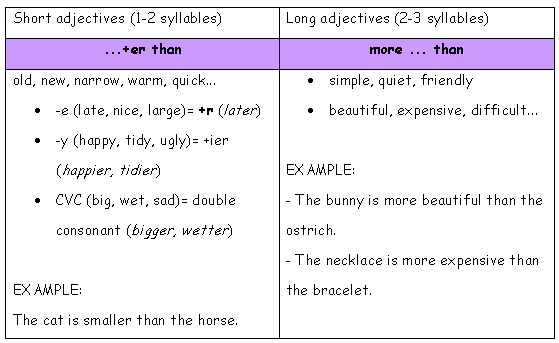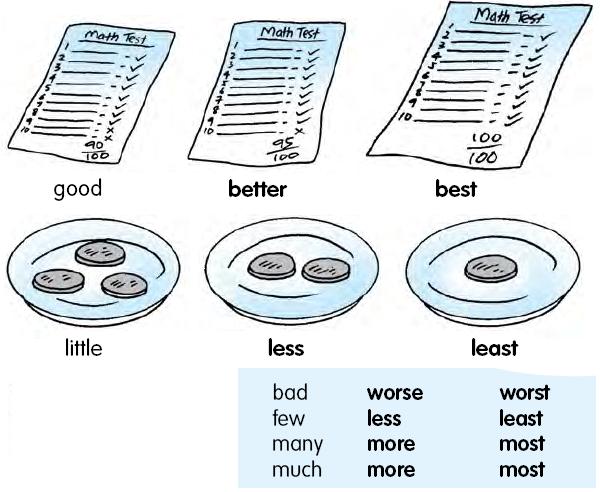The comparative form of an adjective is used for comparing two people or things.
Comparative adjectives are used to compare differences between the two objects they modify (larger, smaller, faster, higher). They are used in sentences where two nouns are compared, in this pattern:
Noun (subject) + verb + comparative adjective + than + noun (object).

Irregular comparative adjectives
Be careful! There are some exceptions that you have to remember:
These very common adjectives have completely irregular comparative and superlative forms.


You can downlowad this document here: Comparative adjectives.
For more information you can visit the following website.
Online activities
Write the correct form of the comparative adjectives:
Activity 1 (easy)
Activity 2. Choose the correct option
Activity 3. Choose the correct option
Activity 4. Choose the correct option (high level)
Fill in the gaps 1. Text
Fill in the gaps 2. Text (high level)
Fill in the gaps. Sentences (high level)
Games
Game 1. Choose the correct comparative form for each adjective.
Game 2. Choose the correct comparative adjective.
Game 3. Write the comparative forms.
Students’ contributions









HI CRIS!
Which words are long adjectives of 2 syllables?
THank you!
Hi Mia!
Very good question! In general, adjectives ending in -ed, -ing, -ful, or -less always form the comparative with “more”, for example: “more boring than…” “more worried than…”
Besides, some two-syllable adjectives can take either -er or more. For example: “simpler than…” or “more simple than…” / “quieter than…” or more quiet than…”.
Cris